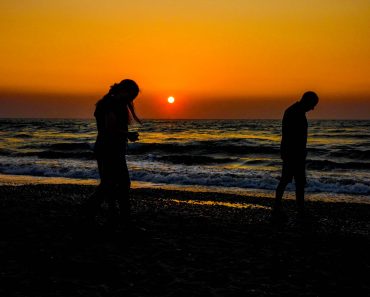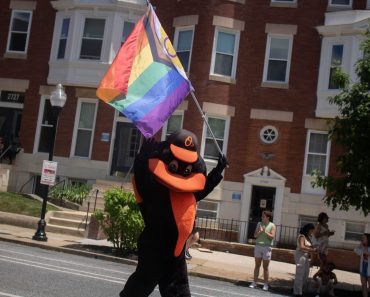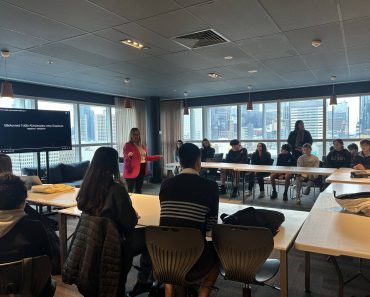NEW YORK – Christos Potamianos, a graduate student in Mechanical Engineering at The Cooper Union for the Advancement of Science and Art, is pioneering research at the intersection of sustainability and aerospace innovation. With a strong cultural identity as a Greek-American and a family history in engineering, Christos blends academic rigor with personal passion. His research in plasma engineering — an emerging and often misunderstood field — positions him at the forefront of efforts to tackle climate change, reduce industrial carbon emissions, and support advancements in aerospace and renewable energy technologies.
Avgi-Maria Atmatzidou: Growing up as a Greek-American, how has that shaped your educational journey, especially with your father being an engineer?
Christos Potamianos: Being Greek-American has had a significant impact on my life. My father immigrated from Kefalonia, Greece, and my mother was born here to Greek parents from Naousa. Greek values— faith, family, tradition, and discipline— have shaped who I am. I attribute much of my drive and focus to those cultural foundations.

AMA: How does plasma engineering connect to your mechanical engineering background? And what is plasma, exactly?
CP: I’ve always been fascinated by how things work. Mechanical engineering was a natural fit, and during undergrad, I was introduced to plasma, often called the fourth state of matter. It’s an energized gas that behaves uniquely, like lightning or the sun’s surface.
Plasma is a lesser-known area of science, but it captivated me. My mechanical background allowed me to explore it deeply and apply physical theories to a field with massive real-world potential.
AMA: How does your plasma work contribute to green energy or environmental sustainability?
CP: My thesis explores how plasma can break down carbon dioxide. We pass CO₂ gas through an electrical discharge between two metal plates. Plasma breaks apart the molecules, which can then be turned into valuable byproducts like formic acid.
Our current reactor is small, but it proves the concept. It could help reduce industrial emissions and convert waste into resources in large-scale applications. We’ve already presented some of our findings at international conferences.
AMA: You mentioned plasma’s potential for aerospace. How does that work?
CP: When I first got into plasma, I told my professor I was passionate about aerospace. Plasma could reduce drag on aircraft wings by altering airflow with electric discharges. I even built a small wing prototype and tested it in a wind tunnel during undergrad.
On a larger scale, plasma is vital in hypersonic flight and spacecraft reentry. At high speeds, air friction generates plasma around the vehicle. Understanding how to design surfaces to resist that heat is crucial, and plasma research is key.
AMA: Where do you see yourself combining plasma and mechanical engineering? Any dreams of NASA?
CP: Absolutely! I dream of working on hypersonics or spacecraft design — integrating plasma science into aerospace engineering. Whether it’s reducing drag or designing heat-resistant materials, I’d love to be part of those efforts.
Projects like supersonic travel — New York to London in an hour — are exciting, but the challenge is making them efficient and affordable. That’s where advanced plasma technologies might help.

AMA: Are you applying your research beyond the lab?
CP: Yes. I’m working full-time on experiments with our CO₂ plasma reactor. We’re testing different setups to maximize carbon reduction. This summer, my professor and a colleague will present our design at the National Renewable Energy Lab in Colorado. Our goal is to prove its efficiency and scalability for industrial use.
AMA: Has your Greek heritage shaped how you approach engineering?
CP: Definitely. My colleagues even call me “the Greek kid” — in a good way! Greek culture has taught me to be passionate, hardworking, and expressive. Whether researching or giving campus tours, I bring energy and authenticity. I’ve even introduced people to Greek music — I once did a short interview on social media about it, and it went viral!
Cultural pride motivates me, distinguishes me, and helps me connect with others. It dramatically affects how I work, communicate, and innovate.
AMA: Bravo! Truly impressive.
CP: Thank you. I appreciate the opportunity to share my story.







